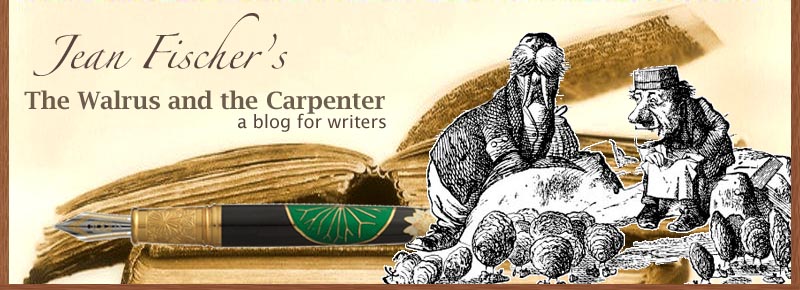The following post is one that I wrote in July 2009 when Twitter had an estimated 6 million users. New statistics show that in January 2010 73.5 million visitors logged on to Twitter's site. That's an amazing 1,105 percent increase! I continue to use Twitter and like it.
A few months ago, I knew very little about Twitter except that the basic idea is to tell in 140 characters or less what you’re doing. Why, I wondered, would anyone care? I did some research and found that in April of 2009, there were more than 6-million registered Twitter users. Nielsen Online projected that by the end of 2009 that number will double, and in 2010 the total audience will top 18 million. Surprisingly, I discovered that people do care what other people are doing.

So, why did I join Twitter, and what have I learned? I joined because I found that many authors, editors and publishers are on Twitter. The trend has moved from personal web pages to social networking sites, and as a self-employed writer I needed to go with the flow. Reluctantly, I joined Twitter expecting to read a plethora of 140-character “tweets” about what people had for dinner and cute things that their kids had done. What a waste of time this is going to be, I said to myself. As it turned out, I couldn’t have been more wrong. After using the service for three months, I’ve learned that Twitter is a cross between texting and micro-blogging. A well-formed tweet has a specific purpose that benefits others by informing, encouraging and even entertaining.
Here are the top five reasons why I’m staying with Twitter.
1. Networking with other writers. Anyone can follow you (read all of your 140-character tweets) on Twitter, and you can follow anyone back. Unless you choose to lock your account and require followers to ask for permission, you can gain a ton of followers in a short time with minimal effort. I began by following several writers I know, and before long, their followers were following me. In just a few months, I’ve connected with more than 300 followers, many of them authors, illustrators and publishers whom I might never have met had I not been on Twitter. Most of these users are also blogging and linking on Twitter to their blogs. I’ve discovered some great blogs this way that have both informed and inspired me.
2. Current publishing news along with insight and opinions from experts. As I began reading the profiles (brief bios) of various users, I discovered that many publishing “insiders” are using Twitter. I’ve found CEO’s, marketing execs, editors and literary agents, all tweeting about the publishing industry. Their 140-character tweets have led me to countless articles about trends and current news that I otherwise might have missed. If I had to choose just one reason to join Twitter, this would be the one. By following the right people, you’ll reap the benefits of valuable shared information.

3. Conferences by proxy. Often, writers and editors will tweet from the conferences they attend. With their Blackberries and iPhones, they share the key ideas in real time as events are happening. If I know in advance that someone will be tweeting from a writers’ conference, I log on, read their tweets and get some of the benefits of the conference without being there.
4. Marketing myself as a freelance writer. Twitter gives me the opportunity to inform potential clients about the kinds of projects I’m currently working on and what I’ve most recently published. I can also tweet about and post links to my latest blog postings. In 140 characters or less, in a carefully formed tweet I’m able to effectively market my writing skills and reach, possibly, millions of people. Having said that, the fastest way to kill the potential of getting new freelance clients is to use Twitter solely as a marketing tool. The key is to be real and be interested not only in you but also in what other people are doing. If you’re tweeting about yourself and your accomplishments all the time, your followers will lose interest and unfollow you.
5. Twitter is less time-consuming than other social networking sites. I find Twitter easier to integrate into my schedule. I have my iGoogle home page set up so I can see my Twitter feed (there’s a gadget for this). Then, as I’m working throughout the day, I scan the tweets. If I see something interesting, I might take a minute to type a quick tweet to respond, or I might copy and paste someone’s tweet and retweet it to my followers. While I’m doing my own writing research, if I find something interesting that I want to share with my followers, I tweet them a link. It all takes very little time. I like it that I don’t have to write a longer message or have an ongoing conversation. I leave that for when I have time to email or instant message with my friends.
There are several other reasons why I’ll continue to use Twitter. I’ve connected with followers who share my hobbies and interests, and I enjoy trading ideas with them and seeing the photos that they post. (Twitpic allows users to easily share links to photos.) I also like Twitter for breaking news. A sidebar on the home page shows “trending topics.” If there is a major news event on the national or international scene, chances are that I will read about it first on Twitter and that someone who is an eyewitness will be tweeting as the story unfolds. A few weeks ago, I was able to read tweets from people in Iran who were experiencing firsthand the aftermath of the Iranian elections. I’ve also been following the current status of Laura Ling and Euna Lee, the two American journalists being held by North Korea....Oh, and there's one last reason why I'm staying with Twitter -- it's interesting to read what other people are doing!
If you would like to learn more about Twitter, I recommend that you read Michael Hyatt’s blog posting “The Beginners Guide to Twitter.” Michael Hyatt is the CEO of Thomas Nelson Publishers and an avid Tweeter with about 35,000 followers. Or, if you prefer to jump right in, go to the Twitter web site and sign up. It’s free, it’s easy and it’s fun.












